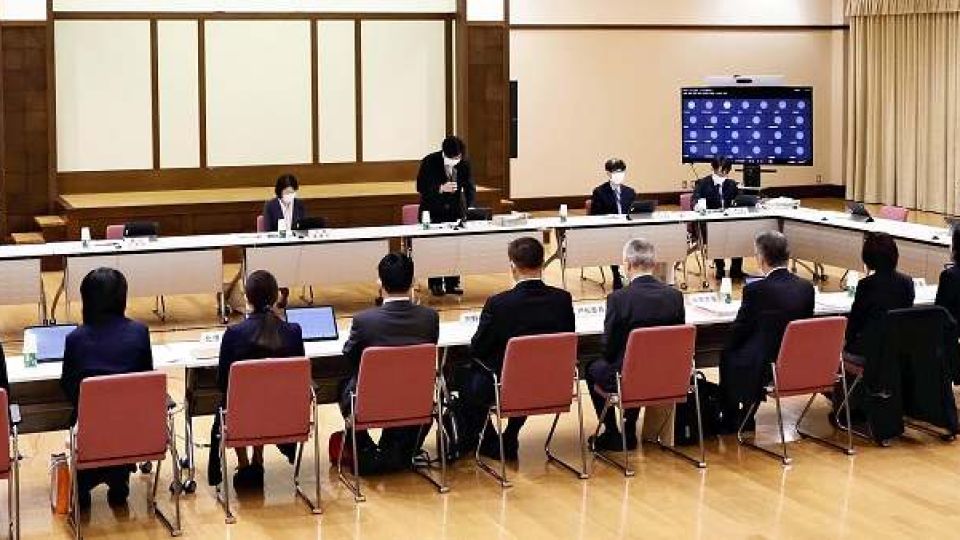October 27, 2022
TOKYO – The government has started procedures to launch a probe into the Unification Church, amid allegations the group has been involved in coercing people to make excessively large donations or buy items through a practice known as “spiritual sales.”
If the probe uncovers violations of the Religious Corporation Law, the government will consider seeking a dissolution order, which would see the group formally known as the Family Association for World Peace and Unification lose its status as a tax-exempt religious organization. However, the group would still be able to continue to operate.
The government plans to launch the probe by the end of this year.
“We shared an understanding that something must be done about this social issue,” said Mariko Kobayashi, a director general of the Cultural Affairs Agency, on Tuesday after a meeting of an expert panel discussing issues regarding the right of the authorities to question religious organizations.
The 19-member panel comprises legal experts and senior Buddhist, Christian and Shinto officials, as well as representatives of other religious organizations. Tuesday’s meeting was held behind closed doors, apart from the opening statement. One panel member did not attend the meeting.
The probe “must be something that’s actually practical,” one member said. Another stated, “the criteria should be examined from the viewpoint of the systematic nature, malice, and continuity [of the alleged actions].”
Prime Minister Fumio Kishida was initially cautious about exercising the right to question the group.
The Cultural Affairs Agency, which has jurisdiction over religious corporations, had held the position that the acts of the Unification Church would not constitute the required conditions for the authorities to issue a dissolution order.
An expert panel of the Consumer Affairs Agency subsequently announced a proposal calling for an investigation with a view to requesting a dissolution order as public criticism of the Unification Church has not subsided.
Taro Kono, minister for consumer affairs, has also called for a probe into the group.
After Kishida had decided to conduct the probe, he stated at a meeting of the House of Councillors Budget Committee on Oct. 19 that “illegal acts under the Civil Code may also be included” as a requirement for a dissolution order, but on the day before, he had clearly stated that “illegal acts under the Civil Code are not included.”
The overnight reversal led many in the ruling and opposition parties to believe that he had prepared the environment for the government to submit a request for a dissolution order.
There have only been two cases in the past of so-called “religious corporations” being ordered to dissolve for violations of laws and regulations: the Aum Supreme Truth cult, which carried out a deadly sarin gas attack on the Tokyo subway system; and Myokaku-ji temple in Wakayama Prefecture, whose priests defrauded people by telling them they were possessed by evil spirits, charging for exorcisms.
In the case of the Aum Supreme Truth cult, a dissolution request was submitted with evidence by the chief public prosecutor of the Tokyo District Public Prosecutors Office, which was in charge of the investigation, and the Tokyo metropolitan government, which had jurisdiction over the case.
In the case of Myokaku-ji temple, the Cultural Affairs Agency filed a request for a dissolution order with the Wakayama District Court after some of the temple’s priests and others were found guilty of fraud.
Although the government is aware of 22 cases in which the Unification Church has been found guilty of systematically conducting illegal acts in civil lawsuits, among other issues, none of its senior officials have faced criminal punishment.
Kishida has said “more facts need to be accumulated” in preparation for requesting a dissolution order.
The government will refer to the information received through a related telephone helpline and comments from alleged victims when compiling questions for its probe.

